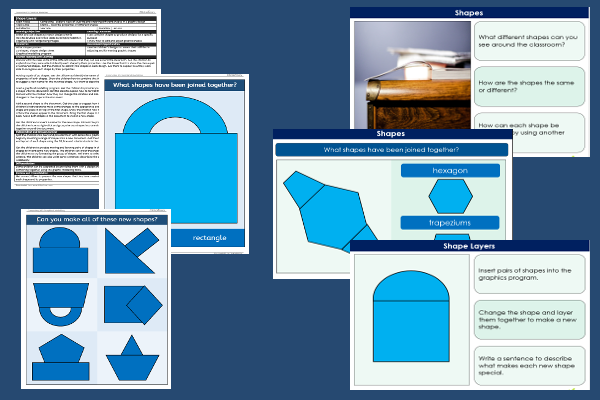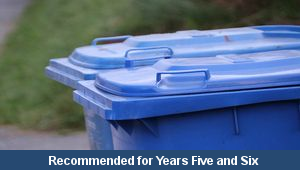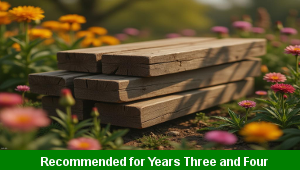Lesson Three – Shape Layers

This computing teaching pack for Key Stage Two gets the children to investigate and illustrate some of the special ways that can be used to layer and order a range of different shapes in a graphic design with a specific function.
The class can explain and model how to adjust and format the matching graphical properties of different shapes as part of a design for a recycling bin.
Download this teaching pack including a lesson plan, classroom activities and an interactive presentation to investigate and illustrate some of the special ways that can be used to layer and order a range of different shapes in a graphic design with a specific function
Activities in this teaching pack include display posters to identify and explain how to layer and combine pairs of shapes in a graphic design and a worksheet to practise layering and adjusting shapes in a graphics program to match different designs.
The interactive presentation can be used to explore and illustrate some of the special ways of layering and ordering different shapes in a graphic design.
This lesson is part of a computing scheme of work to get the children to select, format and adjust the properties of different shapes when creating the graphic design for a recycling bin for use in school classrooms. There are teaching activities for shared learning, differentiated worksheets to support independent learning and interactive presentations to introduce concepts and key skills.
-

Future World
Practise using apostrophes correctly in matching sentences to describe some of the things that might be owned by families in the future
-

Recycling Bin
Select, format and adjust the properties of different shapes when creating the graphic design for a recycling bin for use in school classrooms
-

Space Helmets
Select, shape and combine different mouldable materials to make a model of an astronaut’s helmet that could be worn when exploring space
-

Division Remainders
Explain and model how to solve contextual and abstract problems when dividing two and three digit numbers by single digit numbers with remainders
